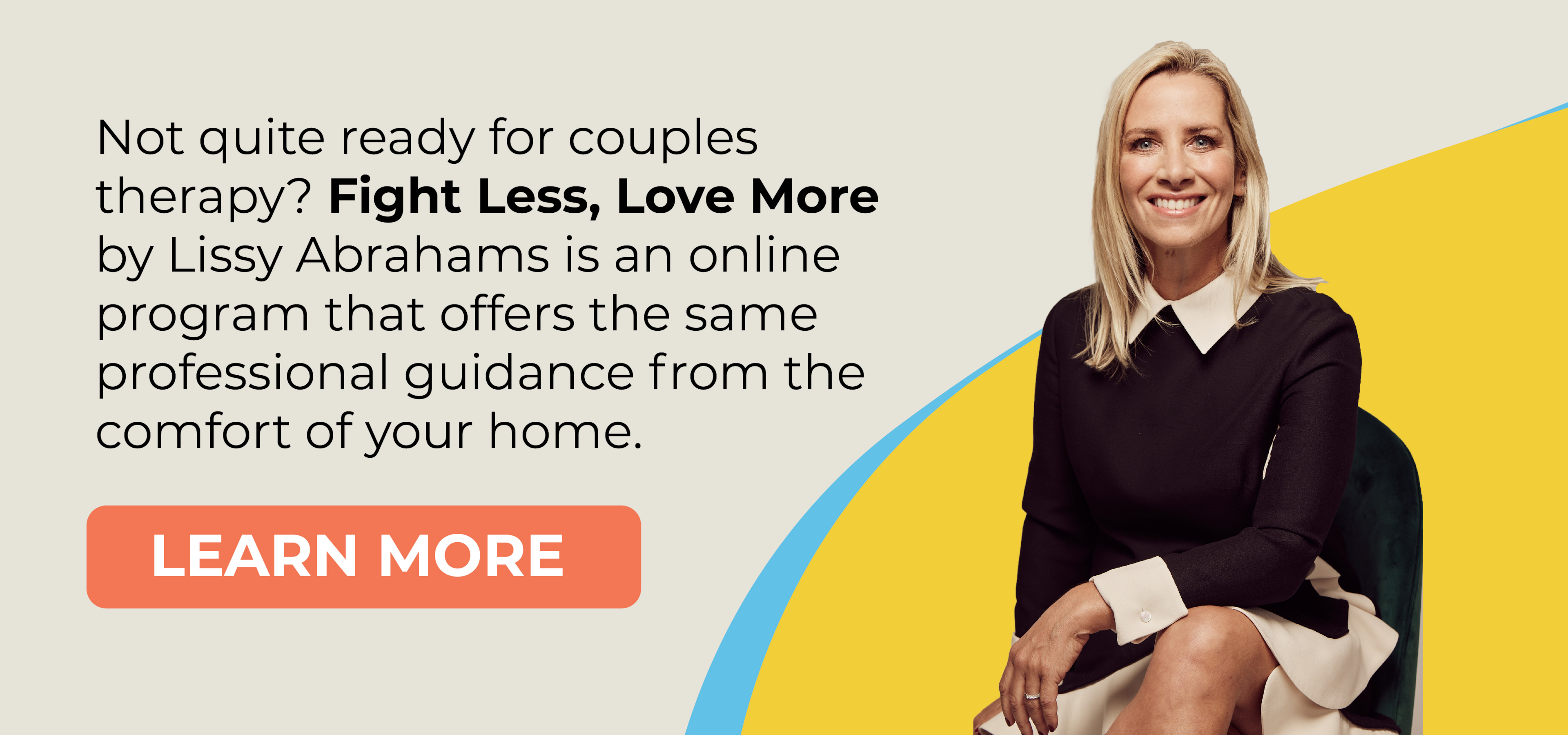Relationship Conflict: An Unexpected Path to Growth

Picture this: After a tiring day you find yourself caught up in a disagreement with your partner over something seemingly insignificant. Hearts racing, voices getting hurtful, words hanging in the air — this is relationship conflict at play. Many of us can relate to this experience.
But have you ever thought that these fights could actually be opportunities for growth and improved cooperation between you?
In this guide, we will dive into the complexities of relationship conflict, uncover its advantages (yes!), and learn strategies to navigate challenges with empathy and insight. We will focus not just on the conflicts themselves, as we aim to highlight how understanding and effectively dealing with them can profoundly impact our relationships.
As we go through this article, I encourage you to reflect on your experiences. Have you ever thought about trying to understand conflict and how it starts to pave the way for a more fulfilling relationship between you and your partner? With researched insights and evidence-based strategies to shed light on the often-misunderstood aspects of relationship conflicts, we will be providing guidance so you can foster healthier connections.
Let's discover how we can transform tensions into triumphs.
Unraveling the Complexity of Relationship Conflict

Conflict is a part of our interactions with others in intimate relationships. These arguments arise from differences in perspectives, needs, or desires. Often, they result in a mix of heightened emotions and reactions.
These experiences expose our vulnerabilities, fears, and insecurities, affecting the overall dynamics of our relationships and how we see others. However, viewing them as disruptions to harmony would oversimplify their nuanced nature.
Conflict in Psychology
Throughout history, scholars and psychologists have looked into the intricacies of relationship conflict. Esteemed psychotherapists like Carl Jung and psychologists such as John Gottman have conducted groundbreaking research, and their findings resonate with many individuals by highlighting that within disputes and moments of silence lie opportunities for growth and understanding.
When it comes to conflict, a multitude of factors are at play. Personality traits, past experiences, communication styles — these all contribute to the dynamics that shape these disagreements.
And just like trying to fit puzzle pieces that don't quite match, our attempts to resolve conflicts without understanding the underlying factors can lead to frustration and discouragement. But when armed with the right knowledge, these conflicts can actually become opportunities for growth and stronger connections.
Uncovering the Strengths Found in Conflict

Does it seem strange to think of conflict as a catalyst for growth? You're not alone. Many people view relationship conflict as disturbances that need resolution. But what if I told you that these very conflicts could serve as springboards for understanding and deeper connections?
In this section, we will start to explore the benefits to conflict and how they can actually contribute to strengthening relationships. While it's easy to see why you may think so, relationship conflicts are not major roadblocks for couples who seek solutions. They are essential guideposts leading us towards our individual and couple development which leads to mutual understanding and personal growth.
Conflicts within our relationships — whether that's with a partner, family member, or in the workplace — can foster growth. While they may be challenging to navigate, relationship conflicts invite partners to communicate their needs, expectations, and emotions leading to an understanding of one another. In fact, when approached with empathy and openness, relationship conflicts can break down barriers, remove pretenses, and pave the way for communication.
These also provide opportunities for us to not only comprehend our partner's perspective but to understand our own reactions and emotions. By providing a space for expressing and exploring our feelings, relationship conflicts provide insights into our personal triggers, biases, and defense mechanisms. This understanding equips us with the skills needed to respond with care and consideration rather than impulsively, which leads to conflicts.
Viewing relationship conflict as a pathway towards self-awareness and understanding helps nurture emotional maturity and strengthens resilience.
Navigating Conflict in Relationships — Real Stories of Success and Practical Applications
Case Study 1: Therapy Sessions for a Couple

Sunil and Jojo, a couple in their early 30s, found themselves frequently embroiled in heated arguments over financial decisions and parenting styles. These conflicts were taking a toll on their relationship and their mental health. They decided to seek help and began attending therapy sessions focused on understanding why they fight and improving their communication skills.
Over time, Sunil and Jojo learned to communicate more effectively and calm themselves down which helped to avoid conflict. They saw each other as more of a team — not competitors — no longer blaming each other endlessly. Their problem-solving ability led to a significant reduction in the frequency and intensity of their arguments, fostering a deeper sense of connection and understanding in their relationship.
Case Study 2: Group Counseling for Resolving Workplace Conflict
A team in a high-pressure IT company was experiencing escalating conflicts as they were under immense stress and were communicating poorly. This negatively impacted their productivity and workplace environment.
The company arranged for group therapy sessions to allow each team member to express their viewpoint and main challenges. This process enabled the team to have greater empathy and understanding for each other.
This intervention led to improved communication and collaboration within the team. Conflicts decreased significantly, and the team members reported feeling more valued and understood, enjoying more harmony in the workplace.
Case Study 3: Decision Making within Family Dynamics
The Cooper family — two parents with two teenage children — were struggling with conflicts arising from differing opinions on family decisions and an unwillingness to hear each other's viewpoints. They entered family counseling to focus on the role of emotions in decision-making. The counselor helped them develop active listening skills, encouraging each family member to share their feelings and thoughts in a non-judgmental space.
These sessions helped the whole family develop respect for each other's emotions and perspectives, which ultimately meant they could make decisions collaboratively. This approach strengthened their bonds, leading to a more cohesive and supportive family unit.
The positive outcomes emphasize the significance of therapy in managing conflicts and fostering harmony within these relationships.
Steps for Resolving Relationship Conflict
When it comes to navigating relationship conflict, the following step by step guide can help achieve results:
1. Prioritize Self-awareness
-
Take note of your emotions.
-
Dig into the underlying reasons behind them.
-
Recognize any contribution to the conflict.
2. Understand the Other's Perspective
Make an effort to comprehend the viewpoints and emotions of others, as empathy plays a role in resolving conflicts.
3. Foster Constructive Communication
Express your feelings using "I" statements rather than "you" statements. For instance, say "I feel upset when..." not "You made me feel..."
4. Practice Active Listening
Pay attention to the person's perspective and demonstrate understanding by validating their thoughts and feelings.
5. Explore Potential Solutions
Collaboratively brainstorm ideas for resolving the conflict involving all parties concerned.
6. Put the Agreed Upon Solution into Action
Once you have reached an agreement or a solution, take action and make sure that everyone involved understands and agrees with the plan.
7. Evaluate and Make Adjustments
Assess how effective the implemented solution is. If the conflict still persists, it may be worth considering seeking professional help, such as counseling or therapy.
Remember that these steps serve as a guide and not all relationship conflicts can be resolved quickly or easily. However, it's important to emphasize empathy, emotional intelligence, and thorough communication in dealing with all types of relationship conflicts.
Further Reading on Relationship Conflict
-
"Emotional Intelligence and Relationship Satisfaction" - This research paper explores how improved emotional intelligence can significantly contribute to resolving relationship conflicts and enhancing relationship satisfaction.
-
"The Role of Emotions in Decision Making" - This scholarly article delves into the role emotions play in decision making, which is an important aspect of managing relationship conflicts.
-
"Structured Narrative Therapy for Marriage Improvement" - This study demonstrates the impact of narrative therapy in mitigating conflicts.
-
The book "Crucial Conversations: Tools for Talking When Stakes Are High" by Patterson, Grenny, McMillan, and Switzler - a resource for communication especially during intense moments when the stakes are high often occurring in relationship conflicts.
Frequently Asked Questions
What are some examples of relationship conflicts?
Relationship conflicts can vary depending on the dynamics of the relationship. Typical examples include disagreements over finances, differences in parenting styles, clashes in habits or lifestyles, imbalances in sharing responsibilities, or challenges with family relationships.
Conflict can also arise from:
-
a lack of understanding or misunderstanding
-
poor communication skills
-
expression of hurtful things
-
partners feeling stressed
-
having family issues
-
partners with heightened sensitivity
-
angry or disapproving body language
-
Expression when partners feel angry or feel frustrated
-
Partners inability for perspective taking
-
Not having a constructive way to provide better communication can lead to name calling, inability to set boundaries, or solve problems
-
Not having time out or take deep breaths when feeling anger
How do you effectively resolve conflict between partners?
Effectively resolving conflict between partners involves approaches that incorporate:
-
maintaining empathetic communication channels
-
acknowledging each other's perspectives and feelings
-
respectfully expressing feelings
-
being considerate of one another's needs
-
allowing non-agreement as a result
It's important to stay away from binary positions, maintaining an open mind. This will help you find the best solution. This may even involve a compromise.
Other helpful strategies include practicing listening skills and taking responsibility by recognizing and apologizing for any mistakes or wrongdoings.
How can you effectively handle conflicts in a relationship?

Having arguments is easy in couple relationships. The challenge is learning how to handle conflict and have conflict discussions where you both have the capacity to communicate effectively. It's not sufficient for one partner alone to try to resolve arguments.
As a therapist, I can tell you that both partners are responsible for conflict resolution to keep their relationship healthy. This is vital as many people contact me as they've neglected this aspect. They often have the underlying feeling that something feels so wrong, yet they don't know how to stop the ongoing fights. They also report that their mental health has worsened due to the conflict situations.
Remember, the objective is not to "win" the argument but to enhance understanding and strengthen the bond between you.
Managing conflict is necessary for healthy relationships. This prevents continuous hurt feelings and for avoiding conflict that is damaging. Communication issues won't simply go away. You can see a therapist in a consulting room or even online counseling. There are also online programs addressing conflict in a relationship.
What are five ways to resolve conflict?
1. Open Communication
Engage in honest conversations about the issues without assigning blame. This approach addresses the relationship conflict directly and prevents the situation from becoming worse. It's important to focus on the problem at hand and avoid conflict escalation.
2. Listening
Make an effort to truly understand your partner's point of view, instead of simply formulating your response. Your partner's perspective may differ from your own, but paying attention to how your partner feels is essential in a healthy way to resolve conflicts in a relationship.
3. Emotional Intelligence
Recognize and manage your emotions during arguments. This skill is key in resolving conflict effectively, especially when your partner's anger or your being angry can lead to an unproductive argument. It helps ensure that discussions remain within a healthy manner.
4. Seeking Compromise
Strive for solutions that consider both partners' needs. Conflict resolution is not about one partner winning, it’s about finding common ground where both people are able to disagree but can work towards a solution to solve the issue.
5. Seeking Counseling or Therapy
If conflicts become overwhelming, seeking guidance from a therapist or counselor can be beneficial. This step is especially helpful for unhappy couples or when there's a similar conflict happening repeatedly. Individual therapy can also assist in understanding each person’s role in the conflict.
Remember, in every relationship conflict arises. What truly matters though is how we are able to handle conflict. It's completely acceptable to seek assistance through counseling or therapy if necessary.
Take the First Step Towards Understanding Relationship Conflict
Put these insights into action and explore your next steps towards understanding and resolving conflict in your relationships. Check out Fight Less, Love More by Lissy Abrahams, psychotherapist and relationship expert whose expertise, experience, and passion empower couples across the globe to put in the work through easy-to-follow, self-paced online programs.
These programs incorporate tried-and-tested, research-based techniques and exercises derived from Lissy’s background in psychotherapy. Start your journey today!



